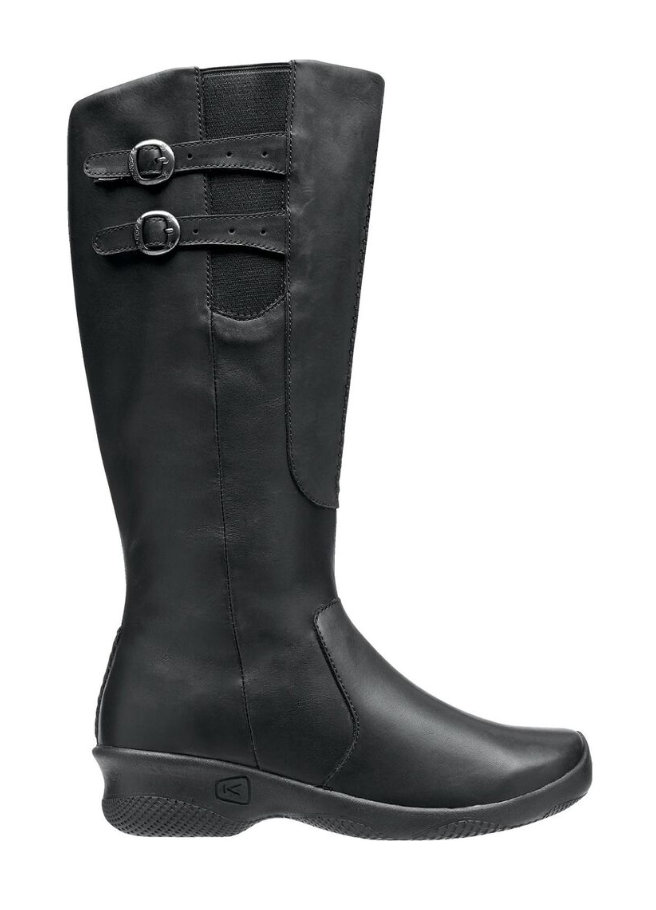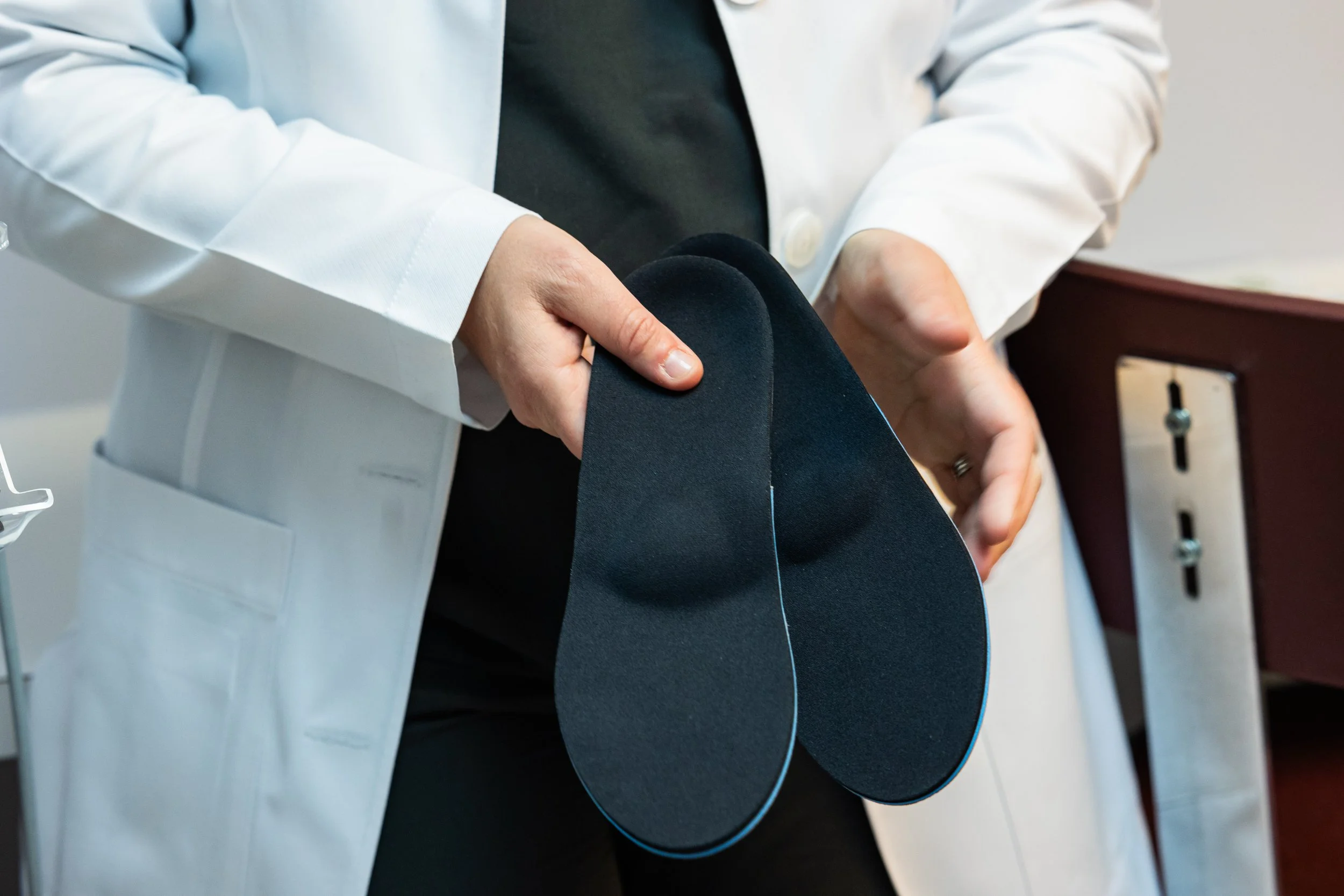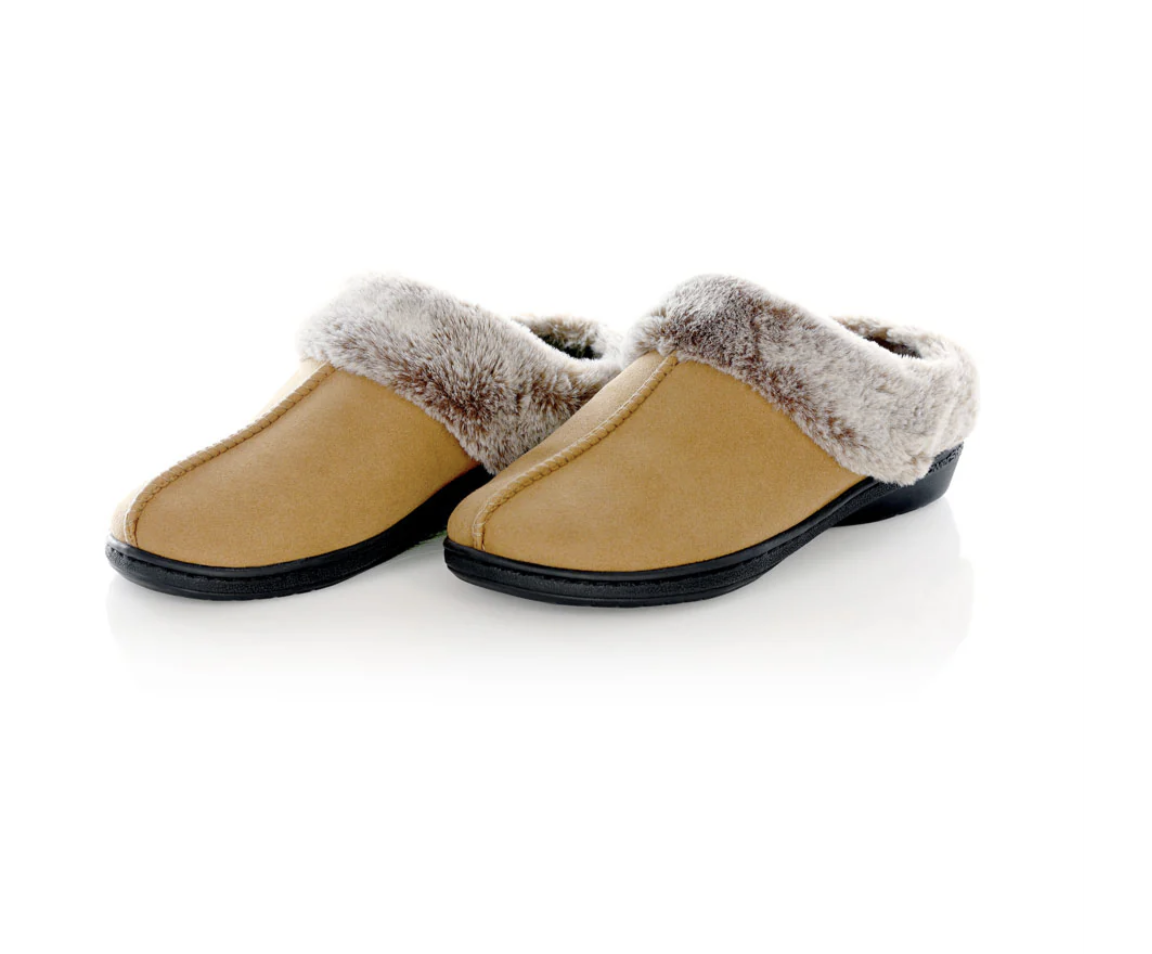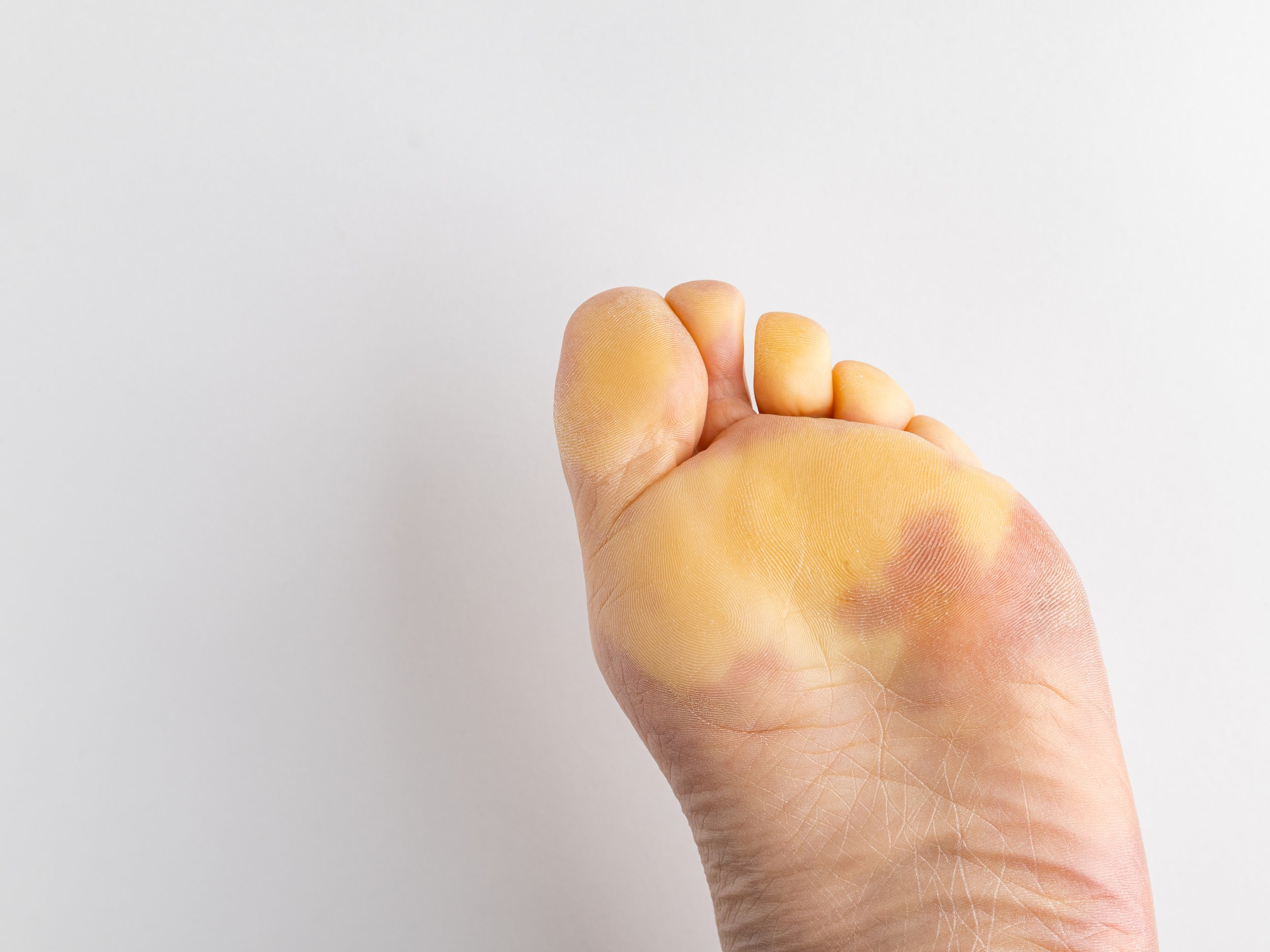Ingrown Toenail Prevention and Treatment
Ingrown toenails are the most common nail problem podiatrists see. It's difficult for scientists to pinpoint the exact prevalence of this issue, but it’s estimated ingrown toenails affect up to 5% of the population. And that’s a lot of people!
Ingrown toenails are twice as common in men than in women, and tend to impact younger men more than most.
If you or someone you love has ever had an ingrown toenail, you probably have questions, like:
How do ingrown toenails form?
Do ingrown toenails go away on their own?
Why do I keep getting ingrown toenails?
And are ingrown toenails genetic?
Though common, many people don’t know how or why ingrown toenails form, or how to effectively prevent and treat them.
City Step Podiatry is here to shed light on this common issue, and to give you the answers you need when it comes to ingrown and involuted toenails.
From causes to treatment to prevention—we’ll offer our insight and guidance so you can stop ingrown toenails from slowing you down.
What causes ingrown toenails?
What’s the deal with ingrown toenails, anyway? How come some folks go their whole lives without having one, while others seem to constantly battle the issue?
An ingrown toenail occurs when a toenail grows into the surrounding skin, causing swelling and possibly infection.
Uncomfortable at best and downright painful at worst, ingrown toenails can even cause foot disabilities if left untreated.
Ingrown nails are most common in the big toe, but can impact any toe.
Improper nail trimming is often the cause of ingrown toenails. Sometimes, a person will proactively trim their toenails in an effort to ward off an ingrown nail, only to create a sharp area or spike that pierces the surrounding nail tissue as it grows.
In some cases, an attempt to round off a corner of the toenail can cause it to grow into the skin.
Some people are predisposed to ingrown toenails, because of the way their nails naturally grow and the unique anatomy of their feet and toes.
Risk factors for developing ingrown toenails include:
Wearing tight or improperly fitting shoes
Poor foot care and hygiene
Toe injuries
Toe shape
Improperly cut toenails
In addition to these risks, folks with certain medical conditions are more likely to develop ingrown toenails. These include:
Diabetes
Hyperhidrosis (a medical condition that causes excessive sweating)
Poor circulation
Taking certain medications, especially epidermal growth factor receptor inhibitors
Some of these risk factors are within your power to control—others are not.
Regardless, it’s wise to be aware if you’re at greater risk for ingrown toenails, so you can keep a close eye on your toenail growth, practice preventive care, and take steps to minimize other manageable risks where possible.
Taking these steps can help reduce your chances of developing ingrown toenails.
Next, let’s explore a sister condition to ingrown toenails, so you have all the important facts at your disposal.
What are involuted toenails?
Involuted toenails are similar to ingrown toenails, in that they cause pain and discomfort in the feet and often affect the big toe more than others.
Involuted toenails occur when the nail curves downward, pushing on the sides of the toe with increased pressure. This pressure is exacerbated by footwear and can cause outright pain.
The affected toe often develops callouses in response to the increased pressure upon it, causing a thickening which can also cause discomfort.
Like ingrown toenails, involuted toenails are often caused by trauma or injury to the toe, improperly fitting footwear, or genetic predisposition.
Now that you know more about what leads to ingrown and involuted toenails, let’s explore how you can treat these issues when they occur.
Ingrown toenail treatment
In most cases, you can tell when you have an ingrown toenail.
A mild case can cause your affected toe to feel swollen or hard to the touch. More severe cases can include symptoms like redness, heat, pain, a darkening of the affected area, and pus. These are all signs your ingrown toe has become infected.
If you’re not confident in self-diagnosis, prefer a second opinion, or have concerns or other health conditions—don’t hesitate to reach out to a podiatrist for help with diagnosing and treating ingrown toenails.
Dr. Young is an expert at assessing and treating ingrown and involuted toenails, as well as foot and ankle issues of all kinds. She specializes in treating those with diabetes, a condition that can complicate many foot and ankle issues.
For mild cases of ingrown toenails, self-treatment may be possible. Treating your ingrown toenail at home can include taking steps like:
Keeping your toenail clean and soaking it daily in warm, soapy water or a solution of water and Epsom salt
Ensuring your nail is dry otherwise
If it’s not too painful, you may try lifting the edge of your nail using sanitized tweezers, dental floss, or clean fingers. Place a clean piece of gauze or cotton under the raised portion of the nail and change this dressing regularly to keep it clean. This may help your toenail grow normally, instead of continuing to press into your skin
Take over-the-counter pain medication as needed
Apply antibiotic ointment and a clean bandage to the area
Avoid shoes if possible, or choose pairs that are comfortable and non-restrictive
These suggestions may help you treat a mild ingrown toenail at home.
If your toe hasn’t improved within a few days, however, or your pain and symptoms are severe, it’s wise to seek out the support and expertise of a podiatrist to treat your ingrown toenail.
At City Step Podiatry, our practice is built around serving the needs of busy Chicago professionals. Our convenient downtown Chicago office location, flexible scheduling, and array of cutting-edge treatments are made to get Chicagoans back on their feet and back to living their active lives.
From in-house digital X-rays to same-day appointments—we’re here to serve you.
Dr. Young also recently obtained her advanced certification in an effective, revolutionary system for treating ingrown and involuted toenails.
She’s proud to offer Onyfix nail correction system treatments to patients in City Step Podiatry’s Chicago clinic.
This exclusive, evidence-based system is proven as an effective, non-invasive treatment modality for both ingrown and involuted nails.
Onyfix also has many additional benefits Dr. Young’s patients love, including being:
Pain-free
Appropriate for everyone, including those with diabetes
Compatible with nail polish
Fast and easy
Corrective
If you suffer from ingrown or involuted toenails and are interested in exploring this treatment, reach out to Dr. Young and her team to see if Onyfix is right for you.
We believe prevention is the best medicine. If you’re prone to ingrown toenails, learning how to keep them at bay is a wise step in your health and wellness. Let’s review some tips for ingrown toenail prevention.
How to prevent ingrown toenails
If you or someone you love are prone to ingrown toenails, there are some proactive steps you can take to reduce your chances of developing this issue in the future.
Ingrown toenail prevention tips include:
Wearing appropriate footwear—Think: shoes that fit well and aren’t too tight or loose, especially on your toes
Keeping your feet clean—foot hygiene is important for preventing infection if you do start to develop an ingrown nail
Practicing hygienic nail trimming—cut your toenails when they’re clean. Nail trimming after a shower is a great time to effectively trim nails, as they're both clean and soaked, making them easier to manage and trim. Also, be sure to clean and sanitize your nail trimmers before use
Protecting your toes—keep your toes safe from trauma and injury, and get assessed by a podiatrist if your toes do experience trauma
Avoiding ripping and tearing nails—using the proper equipment for the job is important. Ripping or tearing your toenail can encourage improper growth, which can lead to ingrown nails
Listening to your doctor—especially for folks with diabetes, inflammatory conditions, and suppressed immune systems, following your doc’s recommendations for foot care is vitally important for your overall health and well-being
If you’re interested in exploring other methods to prevent ingrown toenails, be sure to talk with Dr. Young about Onyfix treatment. She’ll give you the facts and help you decide if this approach is right for you.
Dr. Young chose to pursue advanced certification in this treatment modality because she loves the options it offers her patients—and that it’s proven and pain-free.
Best of all? Onyfix not only treats ingrown and involuted toenails—it prevents them from recurring. That’s because it works to correct the nail, encouraging natural growth. It’s evidence-based to reduce risks for relapse.
Dr. Young especially recommends it for her diabetic patients, who are at increased risk for developing serious complications due to ingrown and involuted toenails.
If you’re dealing with ingrown or involuted toenails or are concerned about them—book an appointment with Dr. Young to discuss your treatment options and get personalized solutions and information to help you make the best health and wellness choice for you.
At City Step Podiatry, we make it easy and enjoyable for you to get the quality podiatry care you need in Chicago!
Schedule an appointment easily online, learn what we offer, and get free guidance and insight on our blog. We’ll gladly support you in understanding and navigating insurance questions. Come visit us in person in our lovely Chicago clinic and follow along with us on your fav social media channels @citysteppod.
City Step Podiatry is here for you! Reach out today to schedule your visit and treat your feet to the care they deserve.








